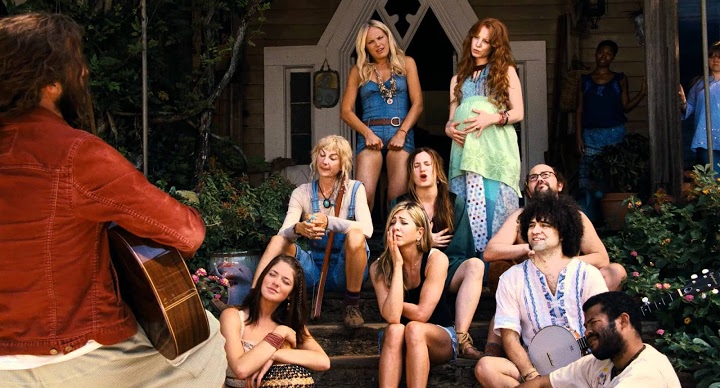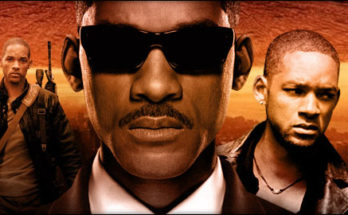These days, a Judd Apatow production merely signifies a series of vulgar jokes paired with copious amounts of nudity (more male than female). Wanderlust could have been more. Sadly, the film veers off onto an unpredictable and foolish path that finds its characters’ motives and settlements clashing with the marginally likeable setup. The fish-out-of-water premise is a solid one and Wanderlust is not without laughs; but an abundance of crude ruses overpowers the eccentricities of the characters while hit-or-miss humor fills pointless sequences that fail to move the plot forward. The energy of Wanderlust’s promising beginning fizzles quickly and the production ends up mimicking its confused and restless protagonists for the majority of the runtime.
Just as New York couple George (Paul Rudd) and Linda (Jennifer Aniston) finally commit to purchasing an apartment, sudden unemployment forces them to give up their new dream and head to Atlanta to stay with George’s brother. Stopping at a wayside bed and breakfast, the couple discovers Elysium, a free-spirited commune where peace, love and happiness abound – as does a host of bizarre nudists and hippies, led by the brusque but eloquent Seth (Justin Theroux). Seduced by their carefree lifestyle, Linda elects to stay, but George isn’t as easily dazzled and soon becomes vexed by the group’s unorthodox and outlandish customs.
There’s a lot missing from Wanderlust. It feels like 30 minutes or more have been noticeably expunged from key areas that would have established characters and running jokes (made more apparent from the theatrical trailer, which shows several scenes that never make it into the final cut). The conclusion isn’t based on anything previously hinted at, the antagonist is appropriated without warning just to provide villainy, and abrupt decisions are made by unprovoked characters, resulting in a gaping lack of realism. The initial proposition is a one-note gag that sets up potential but is never given a chance to blossom. Every time locations or characters are introduced, many are ignored, forgotten, or left devoid of humorous implications. Even the most obvious involvement, such as George’s brother manning a Porta-Potty company, never gets an opportunity to present the simplest, go-to gross-out skit that inevitably rears its head when dealing with carriageable sanitation units.
Thick, palpable sarcasm permeates all of Paul Rudd’s lines while Aniston is utilized primarily for physical comedy. The opening scene is well done, with creative editing, weird expressions and montage, but after about fifteen minutes or so, the humor begins to dwindle rapidly. With expected stereotypes and generic sidekicks that include an obnoxious brother, a foul-mouthed kid, a crazy old man, a longhaired mantra-spewing hippie guru, and a young blonde female with evanescent inhibitions, nothing particularly unique is submitted. Nonsense takes over when verbal comedy ceases, and uncomfortable or disgustingly awkward situations shoulder those moments when absurdity stops working. It’s troublesome when end credit bloopers are funnier than anything in the film. Based on early screenings and gossip, the only thing Wanderlust is likely to be remembered for is Jennifer Aniston’s nude scene, which was filmed but then removed from the theatrical version.



